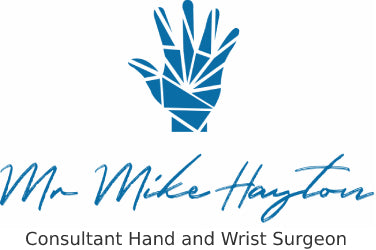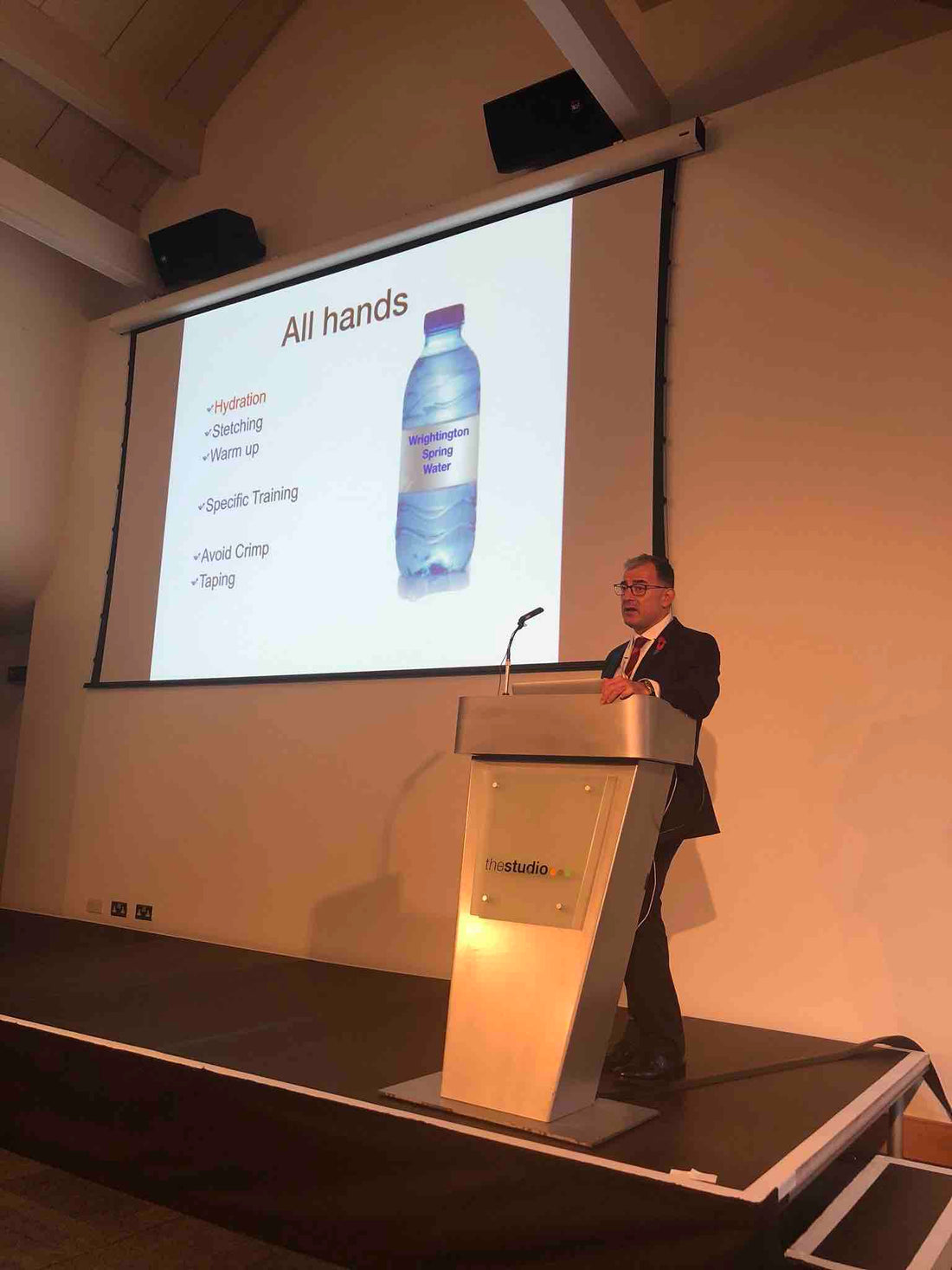Mike spoke last Friday at the annual meeting of the British Association of Hand Therapists held in Birmingham.
He spoke in the morning on pulley injuries in climbers and the rehabilitation involved. His tour gave an introduction as to the function of the pulley system, and what happens when it fails. He talked about the history that is often given five climbers when the pulley system fails with an immediate and often audible popping sensation. This is followed with the finger swelling and becoming bruised. Investigations for this injury are often dynamic ultrasound scan which can show the swelling and oedema around the flexor pulley but of vital importance is the amount of both stringing that occurs with a full pulley rupture. The opposite finger can be used as a comparison to make the diagnosis. Mike went on to talk about the indications for surgical intervention or treatment conservatively. He talked about the various plans that are utilise and stress the importance of hydration of climbers during activity. Surgery was discussed which is now increasingly performed wide awake under local anaesthesia with no tourniquet (WALANT). Mike presented his recent advance case of three fully ruptures in an athlete I was able to compete and win an international event nine months post injury. Mike also stressed how important the post-operative rehabilitation is for the athlete to return to full function.
The second talk at lunchtime was a sponsored talk on collagenase injections (Xiapex). Mike spoke about his clinical experience with over 500 Xiapex injections and also the rehabilitation following the manipulation. There were interesting questions and discussion relating to the various other options for treating Dupuytren's disease. The options available are percutaneous needle fasciotomy (PNF) or open surgery. Discussion continued regarding the recent trial that is recruiting patients to be randomised to receive either Xiapex or open surgery for palmar disease. Mike explained he had already recruited patients to this trial.
The remainder of the lectures were extremely informative and covered a wide variety of topics and particular interest was shown with the non-invasive methods of treating proximal phalanx fractures.
It was good for Mike to meet up with Ian Gatt, lead physiotherapist for GB boxing, who gave a talk on extensor hood injuries in elite boxers. Mike and Ian had been working together for more than 10 years they have seen a dramatic reduction in cases requiring surgery with Ian's intervention particularly around hand wrapping that previously was not optimized.
The following day Ian ran a workshop regarding taping techniques on the hand which was apparently well received.

